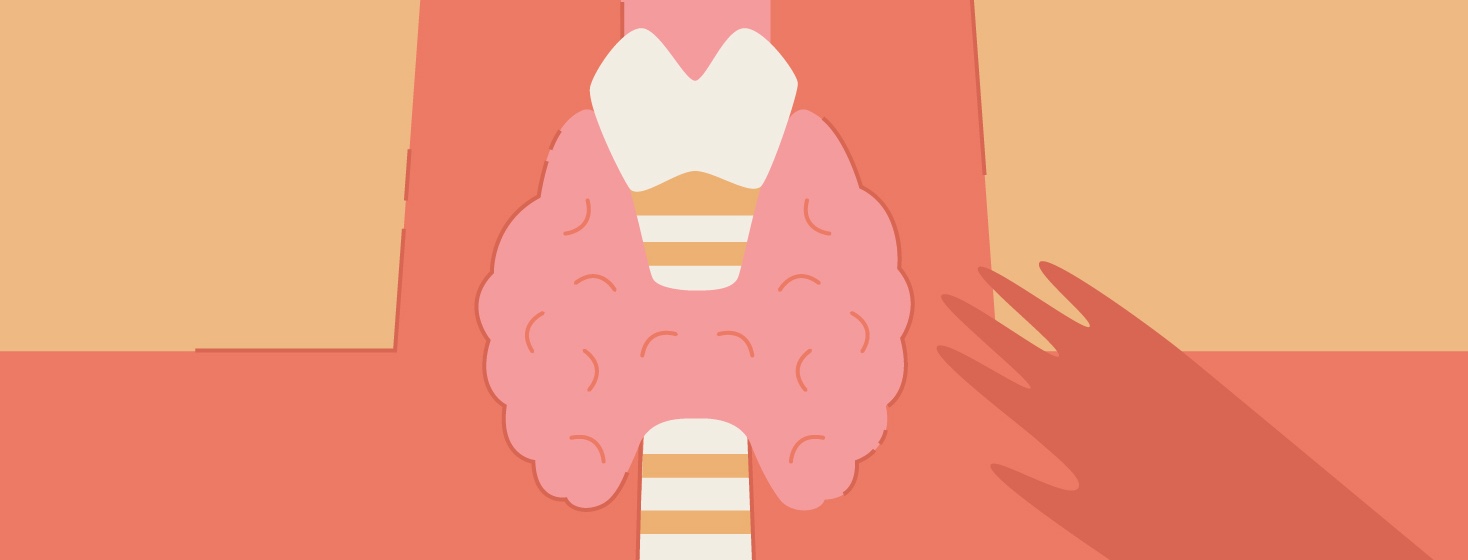Your Thyroid and Hep C
One of the most frustrating aspects of hep C is that it often doesn’t exist alone. People with hep C are more likely to have other conditions in addition to their hep C - these additional conditions are referred to as comorbidities. For example, thyroid disease is common in people with hep C.
What is the thyroid gland?
The thyroid is a gland located in the neck that has several important functions.1 The main role of the thyroid is to maintain your metabolism by releasing hormones. In the general population, thyroid conditions are quite common. Examples of common thyroid disorders include:
- Hypothyroidism - Your thyroid gland doesn’t produce enough thyroid hormone, leading to symptoms such as excessive tiredness, being prone to cold, weight gain, troubles having a bowel movement, and dry skin.2
- Hyperthyroidism - With hyperthyroidism, your thyroid gland makes too much thyroid hormone. Symptoms may include unexplained weight loss, shortness of breath, fast heart rate, and increased appetite.3
How does this relate to hep C?
It was found that up to 13% of people with hep C have hypothyroidism.4 In comparison, 3-5% of the general population are hypothyroid.4 For this reason, your doctor may check your thyroid hormone levels by a blood test if you recently have been diagnosed with hep C.
What if my blood test shows I have a thyroid disorder?
If your blood test comes back indicating that you have a thyroid disorder, it may feel very frustrating at first at the thought of having to manage another condition. The good news is that overall, thyroid disorders are very treatable.2 Once treated, people will have a normal life expectancy, similar to those without the condition.
Treatment for hypothyroidism
Hypothyroidism is considered a life-long condition and requires ongoing drug therapy.5 The drugs used to treat hypothyroidism work by restoring the level of thyroid hormone. Your doctor may prescribe Synthroid or Eltroxin, with the dose depending on your level of hormone deficiency.5 Almost all patients respond well to these drugs, and fortunately there are no side effects as long as you are prescribed the correct dose. Sometimes, if the prescribed dose of the medication is too high, it can put your body at a hyperthyroid state. In order to prevent this from happening, your doctor will repeat lab work regularly to ensure that the dose continues to be appropriate for you.
Treatment for hyperthyroidism
The treatment of hyperthyroidism may be more complex than that of hypothyroidism.6 This is because treatment depends on the cause of the hyperthyroidism. The goals of therapy are to control the symptoms - For example, someone may be prescribed a beta blocker to help control their rapid heart rate.6 In addition, there are drugs that help reduce thyroid hormone production, such as Tapazole.
Managing comorbidities can be very frustrating. Having an understanding of the conditions may help with management. Do you have a thyroid disorder? Share your experiences below!

Join the conversation